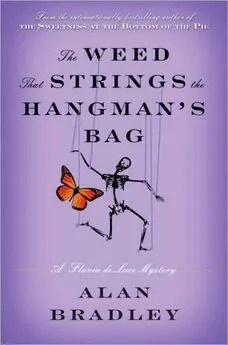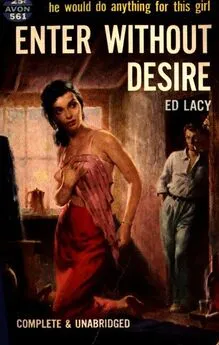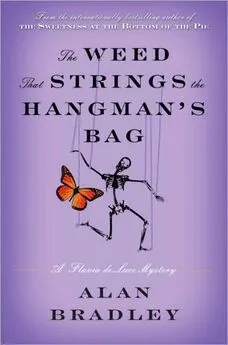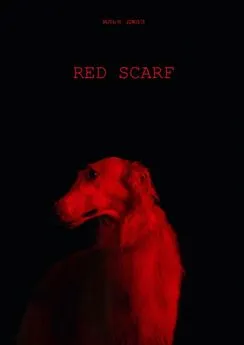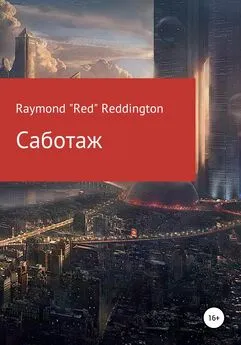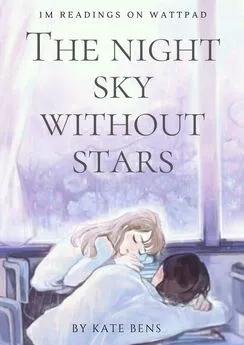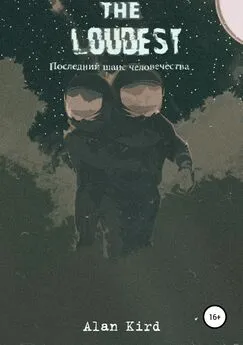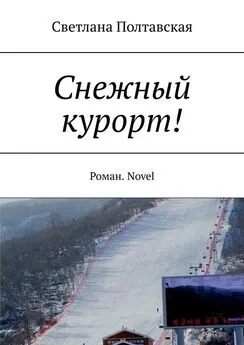Alan Bradley - A Red Herring Without Mustard: A Flavia de Luce Novel
- Название:A Red Herring Without Mustard: A Flavia de Luce Novel
- Автор:
- Жанр:
- Издательство:неизвестно
- Год:неизвестен
- ISBN:нет данных
- Рейтинг:
- Избранное:Добавить в избранное
-
Отзывы:
-
Ваша оценка:
Alan Bradley - A Red Herring Without Mustard: A Flavia de Luce Novel краткое содержание
A Red Herring Without Mustard: A Flavia de Luce Novel - читать онлайн бесплатно полную версию (весь текст целиком)
Интервал:
Закладка:
“Ten years ago,” Vanetta was saying, “I went to Buckshaw on a winter day.”
She was now standing behind me.
“How well I remember it. There had been a killing frost overnight. Everything was covered with ice. I rang up your mother and suggested that we leave it until another day, but she wouldn’t hear of it. She was going away, she said, and she wanted the portrait as a gift for your father. She meant to give it to him as a surprise when she returned.”
My head was spinning.
“Of course, she never did,” she added softly, “and frankly I’ve not since had the heart to hand it over to him, the poor man. He grieves so.”
Grieves? Although I had never thought about it in precisely this way, it was true. Father did grieve, but he did so in private, and mostly in silence.
“The painting, I suppose, belongs to him, since your mother paid me for it in advance. She was a very trusting person.”
Was she ? I wanted to say. I wouldn’t know. I didn’t know her as well as you did .
Suddenly, I needed to get out of this place—to be outdoors again where I could breathe my own breath.
“I think you’d better keep it, Mrs. Harewood—at least for now. I wouldn’t want to upset Father.”
Hold on ! I thought. My whole life was given over to upsetting Father—or at least to going against his wishes. Why now was I filled with a sudden desire to comfort him, and to have him hug me?
Not that I would, of course, because in real life we de Luces don’t do that sort of thing.
But still, some unknowable part of the universe had changed, as if one of the four great turtles that are said to support the world on their backs had suddenly shifted its weight from one foot to another.
“I have to go now,” I said, backing, for some reason, towards the door. “I’m sorry to hear about Brookie. I know he had lots of friends in Bishop’s Lacey.”
Actually, I knew no such thing! Why was I saying this? It was as if my mouth were possessed, and I had no way of stopping its flow of words.
All I really knew about Brookie Harewood was that he was a poacher and a layabout—and that I had surprised him in his midnight prowling. That and the fact that he had claimed to have seen the Gray Lady of Buckshaw.
“Good-bye, then,” I said. As I stepped into the hallway, Ursula turned rapidly away and scuttled out of sight with a wicker basket in her hand. But not so quickly that I missed the look of pure hatred that she shot me.
As I bicycled westward towards Bishop’s Lacey, I thought of what I had seen. I’d gone to Malden Fenwick in search of clues to the behavior of Brookie Harewood—surely it was he who had attacked Fenella Faa in the Palings, for who else could have been abroad at Buckshaw that night? But instead, I had come away with a new image of Harriet, my mother: an image that was not as happy as it might have been.
Why, for instance, did it gnaw at my heart so much to see Feely and Daffy, like two contented slugs, secure and basking in her glow, while I lay helpless, wrapped up like a little mummy in white cloth; of no more interest than a bundle from the butcher?
Had Harriet loved me? My sisters were forever claiming that she did not: that, in fact, she despised me; that she had fallen into a deep depression after I was born—a depression that had, perhaps, resulted in her death.
And yet, in the painting, which must have been made just before she set out on her final journey, there was not a trace of unhappiness. Harriet’s eyes had been upon me and the look on her face had shown, if anything, a trace of amusement.
Something about the portrait nagged at my mind: some half-forgotten thing that had tried to surface as I stood staring at the easel in Vanetta Harewood’s studio. But what was it?
Hard as I tried, I couldn’t think of it.
Relax, Flavia , I thought. Calm down. Think about something else .
I had long ago discovered that when a word or formula refused to come to mind, the best thing for it was to think of something else: tigers, for instance, or oatmeal. Then, when the fugitive word was least expecting it, I would suddenly turn the full blaze of my attention back onto it, catching the culprit in the beam of my mental torch before it could sneak off again into the darkness.
“Thought-stalking,” I called the technique, and I was proud of myself for having invented it.
I let my mind drift away towards tigers, and the first one that came to mind was the tiger in William Blake’s poem: the one that burned away with fearful symmetry in the forests of the night.
Once, when I was younger, Daffy had driven me into hysterics by wrapping herself in the tiger-skin rug from Buckshaw’s firearm museum and creeping into my bedroom in the middle of the night, while reciting the poem in a deep and fearsome snarl: “ Tyger, tyger, burning bright … ”
She had never forgiven me for throwing my alarm clock. She still had the scar on her chin.
And now I thought of oatmeal: in the winter, great steaming ladles of the stuff, gray, like lava dished from a volcano on the moon. Mrs. Mullet, under orders from Father—
Mrs. Mullet! Of course!
It was something she’d told me when I’d asked about Brookie Harewood. “His mother’s that woman as paints over in Malden Fenwick.
“P’raps she’ll even paint you in your turn,” Mrs. M had added. “ In your turn. ”
Which meant that Mrs. M knew about the portrait of Harriet! She must have been in on the secret sittings.
“Tiger!” I shouted. “Tye-ger!”
My words echoed back from the hedgerows on either side of the narrow lane. Something ahead of me bolted for cover.
An animal, perhaps? A deer? No, not an animal—a human.
It was Porcelain. I was sure of it. She was still wearing Fenella’s black crepe dress.
I brought Gladys to a skidding stop.
“Porcelain?” I called. “Is that you?”
There was no answer.
“Porcelain? It’s me, Flavia.”
What a foolish thing to say. Porcelain had hidden in the hedgerow because it was me. But why?
Although I couldn’t see her, she was probably close enough to touch. I could feel her eyes upon me.
“Porcelain? What is it? What’s the matter?”
The eerie silence lengthened. It was like one of those parlor séances when you’re waiting for the dial on the Ouija board to move.
“All right,” I said at last, “take your time. I’m sitting down and I’m not moving until you come out.”
There was another long wait, and then the bushes rustled and Porcelain stepped out into the lane. The look on her face suggested that she was on her way to the guillotine.
“What’s the matter?” I asked. “What’s happened?”
As I took a step towards her, she moved away, keeping a safe distance between us.
“The police took me to see Fenella,” she said shakily. “In the hospital.”
Oh, no ! I thought. She’s died of her injuries. Let it not be true .
“I’m sorry,” I said, taking another step. Porcelain fell back, raising her hands as if to fend me off.
“Sorry?” she said in a strange voice. “What for? No!—Stay where you are!”
“Sorry for whatever’s happened to Fenella. I did everything I could to help her.”
“For God’s sake, Flavia,” Porcelain screamed, “stop it! You bloody well tried to kill her, and you know you did. And now you want to kill me!”
Her words hit me like a body blow, knocking the wind completely out of me. I couldn’t breathe; my head was spinning, my mind was spinning, and there was a sound in my head like a swarm of locusts.
“I—”
But it was no good—I couldn’t speak.
“Fenella told me all about it. You and your family have hated us for years. Your father drove Fenella and Johnny Faa off your estate and that’s why Johnny died. You took her back to their old camping place so that you could finish the job, and you very nearly did, didn’t you?”
“That’s insane,” I managed. “Why would I want to—”
“You were the only one that knew she was camped there.”
“Look, Porcelain,” I said. “I know you’re upset. I understand that. But if I wanted to kill Fenella, why would I bother going for Dr. Darby? Wouldn’t I simply let her die?”
“I—I don’t know. You’re confusing me now. Maybe you wanted an excuse—just in case you hadn’t killed her.”
“If I’d wanted to kill her, I’d have killed her,” I said, exasperated. “I’d have kept at it until I was finished. I wouldn’t have botched it. Do you understand?”
Her eyes widened, but I could see that I had made my point.
“And as for being the only one around that night, what about Brookie Harewood? He was roaming around at Buckshaw—I even caught him in our drawing room. Do you think I killed him, too? Do you think someone who weighs less than five stone murdered Brookie—who probably weighs thirteen—and hung him up like a bit of washing from Poseidon’s trident?”
“Well …”
“Oh, come off it, Porcelain! I don’t think Fenella saw her attacker. If she had, she wouldn’t have blamed it on me. She’s badly injured and she’s confused. She’s letting her mind fill in the blanks.”
She stood there in the lane staring at me as if I were the cobra in a snake charmer’s basket, and had suddenly begun to speak.
“Come on,” I said, getting Gladys ready to go. “Hop on. We’ll go back to Buckshaw and find some grub.”
“No,” she said. “I’m going back to the caravan.”
“It isn’t safe,” I said. Perhaps by presenting the nasty facts without varnish I could change her mind. “Whoever bashed in Fenella’s skull and stuck a lobster pick up Brookie’s nostril is still wandering about. Come on.”
“No,” she said. “I told you, I’m going back to the caravan.”
“Why? Are you afraid of me?”
Her answer came a little too quickly for my liking.
“Yes,” she said. “I am.”
“All right, then,” I said softly. “Be a fool. See if I care.”
I put a foot on a pedal and prepared to push off.
“Flavia—”
I turned and looked at her over my shoulder.
“I told Inspector Hewitt what Fenella said.”
Wonderful , I thought. Just bloody wonderful .
Someone once said that music has charms to soothe a savage breast—or was it “beast”? Daffy would know for sure, but since I wasn’t speaking to her, I could hardly ask.
But for me, music wasn’t half as relaxing as revenge. To my way of thinking, the settling of scores has a calming effect upon the mind that beats music by a Welsh mile. The encounter with Porcelain had left me breathing noisily through my nose like a boar at bay and I needed time to simmer down.
Stepping through the door into my laboratory was like gaining sanctuary in a quiet church: The rows of bottled chemicals were my stained-glass windows, the chemical bench my altar. Chemistry has more gods than Mount Olympus, and here in my solitude I could pray in peace to the greatest of them: Joseph Louis Gay-Lussac (who, when he found a young assistant in a linen draper’s shop surreptitiously reading a chemistry text which she kept hidden under the counter, promptly dumped his fiancée and married the girl); William Perkin (who had found a way of making purple dye for the robes of emperors without using the spit of mollusks); and Carl Wilhelm Scheele, who probably discovered oxygen, and—more thrilling even than that—hydrogen cyanide, my personal pick as the last word in poisons.
Читать дальшеИнтервал:
Закладка:

